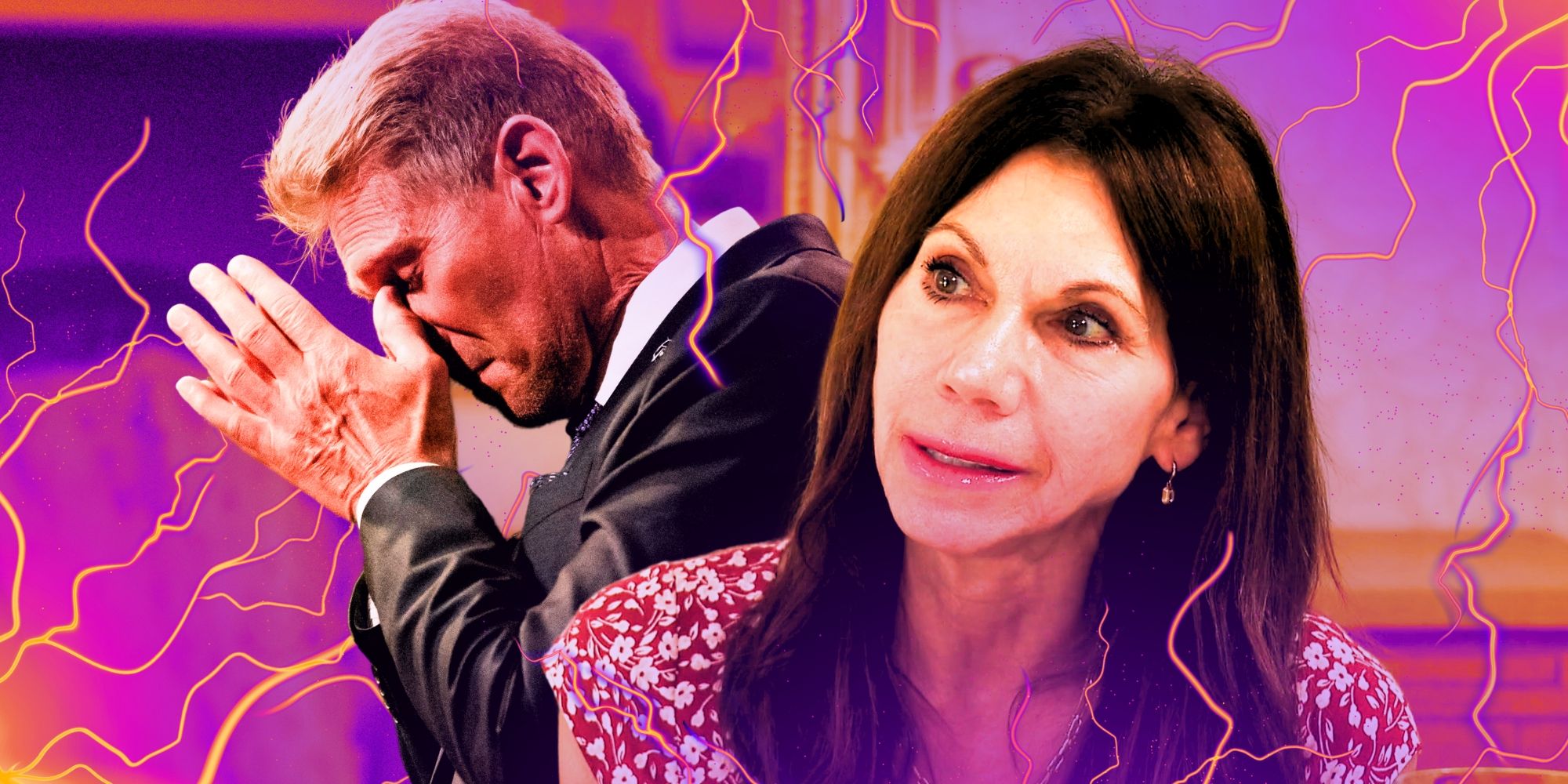
When The Golden Bachelor premiered in September 2023, it promised viewers a reimagining of reality romance — one with more maturity, authenticity, and long-overdue representation of love after 60. At the center of it all stood Gerry Turner, a charming 72-year-old widower from Indiana, who won America’s heart with his gentle voice, emotional vulnerability, and belief that it’s never too late to fall in love again.
By the end of the season, millions watched him propose to Theresa Nist, a 70-year-old financial services professional from New Jersey. Their televised wedding in January 2024 was framed as the pinnacle of “golden” romance — a fairytale culmination for viewers hungry for hope.
But when Gerry and Theresa announced their divorce just three months later, fans and critics alike began asking: Was The Golden Bachelor really a fresh take on love, or just a familiar fantasy wrapped in gray hair and golden lighting?
The Divorce Heard Around Reality TV
In April 2024, Gerry and Theresa appeared together on Good Morning America to confirm what tabloids had been speculating: their marriage was over. The reason? Geographical distance, lifestyle differences, and, as they both admitted, a love that didn’t last beyond the cameras.
Theresa tearfully shared, “We wanted to make it work. We really did.” Gerry echoed that sentiment but emphasized that logistics — such as living in different states and not wanting to uproot their families — made it impossible.
Their split sent shockwaves across Bachelor Nation. Many fans felt betrayed, not by the divorce itself, but by what felt like a rushed, idealized version of senior love that may never have had time to truly grow.
Was the Franchise Too Eager to Deliver a “Happy Ending”?
The Bachelor franchise has long been criticized for prioritizing spectacle over substance. Fairy-tale proposals are the norm, even when relationships crumble weeks later. But The Golden Bachelor was supposed to be different. More grounded. More real.
Instead, it followed the same formula: whirlwind romance, proposal under pressure, a fast-tracked wedding, and inevitable fallout. Critics argue that by accelerating the relationship to meet production timelines, the show set Gerry and Theresa up for failure.
Dr. Jennie Marshall, a psychologist who specializes in late-life relationships, said in an interview with Vulture: “People over 60 often approach relationships more cautiously because of previous life experiences — losses, children, finances. Compressing courtship into a six-week reality TV arc isn’t reflective of how many seniors build lasting partnerships.”
A Reputation at Risk?

The franchise’s attempt to paint itself as age-inclusive now faces new scrutiny. While The Golden Bachelor shattered viewership expectations and drew praise for showcasing older adults as vibrant and romantic, the short-lived marriage has led some to question its sincerity.
The optics of two older people divorcing just weeks after a heavily promoted, prime-time wedding feed into a long-standing critique: that reality TV, no matter the age group, isn’t built for real, lasting love.
Still, others argue that the very act of loving openly and taking risks at any age is worth celebrating — regardless of the outcome. As one Twitter user posted, “Gerry and Theresa showed us that love doesn’t have to be perfect to be beautiful.”
What Comes Next for The Golden Franchise?
Despite the divorce, ABC appears committed to expanding the Golden universe. The Golden Bachelorette is in early development, with heavy fan campaigning for either Faith Martin or Leslie Fhima to lead the new season.
There’s even been speculation about a Golden Paradise spin-off featuring former contestants, perhaps taking a cue from the Bachelor in Paradise format. The aim? Let seniors explore romance in a more relaxed, low-pressure setting.
Producers are also reportedly considering mental health professionals as part of the next season’s on-screen journey, to help navigate grief, blended families, and late-life dating challenges more authentically.
Redefining “Happy Ending” for a New Era
The truth is: not every love story needs a forever to be valid. Gerry and Theresa’s relationship — brief as it was — opened the door for conversations about vulnerability, connection, and the reality of finding love later in life.
Their divorce doesn’t mean the show failed. If anything, it reinforces what makes this series worth watching: the recognition that love is complicated, healing is nonlinear, and romance is not the exclusive domain of the young.
As Theresa told People Magazine in a post-divorce interview: “I don’t regret a thing. I walked into the unknown with an open heart, and I’ll keep doing that. That’s the golden part.”
In a genre known for glittery illusions, maybe honesty — even the painful kind — is the most radical thing The Golden Bachelor gave us.